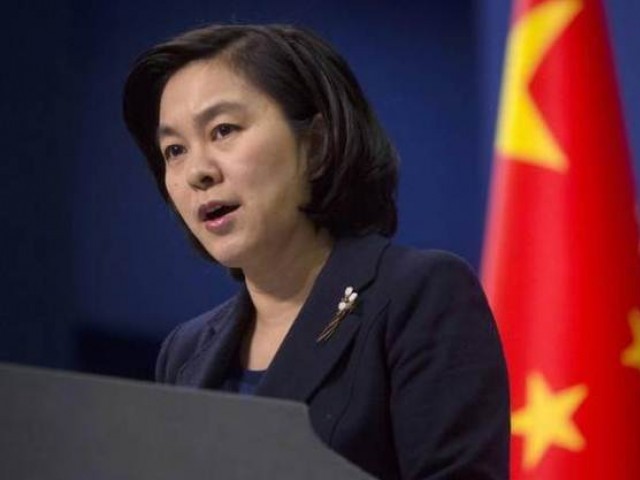
In a move to tighten its grip on occupied Jammu and Kashmir, India dropped a constitutional provision that allowed the disputed territory to make its own laws.
The changes imposed by Modi's Hindu nationalist-led government are the most sweeping in the nearly 30 years that India has been battling a freedom struggle in occupied Kashmir.
The BJP government also broke up the state into two federally administered territories.
China said it opposed India's decision to revoke Kashmir’s special status and that New Delhi needed to be cautious on border issues.
"India's action is unacceptable and would not have any legal effect," Foreign Ministry spokeswoman Hua Chunying said in a statement.
India occupied the populous Kashmir Valley and the Hindu-dominated region around Jammu city, Pakistan controls a wedge of territory in the west, and China holds a thinly populated high-altitude area in the north.
China urged India to strictly abide by the agreements reached by both countries in order to avoid any actions that would further complicate boundary issues, Hua said.
India and China have a longstanding dispute over the border including in Ladakh, the high altitude area.
Hua said China opposed India’s decision to revoke the special status of occupied Kashmir, because it undermined the country’s territorial sovereignty.
The Chinese statement was the most critical of the impact of India’s actions on the mainly Buddhist region of Ladakh – an area of strategic importance nestled between Tibet and Pakistan, Bloomberg News reported.
Just two years after India and China’s decades-long dispute flared up over a remote area of the Himalayas, Prime Minister Narendra Modi’s surprise move on Kashmir has inflamed tensions yet again.
Beijing has always opposed India’s inclusion of Chinese territory in the western section of the China-India border, Hua said.
“China is seriously concerned about the current situation in [occupied] Kashmir, Hua said.
“We call on India and Pakistan to peacefully resolve relevant disputes through dialogue,” she said, noting China had urged India to “avoid any move that further complicates the border issue”.
India, meanwhile, told China that the government’s move was an “internal matter”.
The Indian government said Ladakh’s new designation as a “union territory” was “an internal matter concerning the territory of India”.
“India does not comment on the internal affairs of other countries and similarly expects other countries to do likewise,” Indian foreign ministry spokesperson Raveesh Kumar said.
He added that both sides had committed to maintaining “peace and tranquility in the border areas”.





1732354127-0/Untitled-design-(3)1732354127-0-270x192.webp)


1732344836-0/BeFunk_§_]__-(37)1732344836-0.jpg)








COMMENTS
Comments are moderated and generally will be posted if they are on-topic and not abusive.
For more information, please see our Comments FAQ